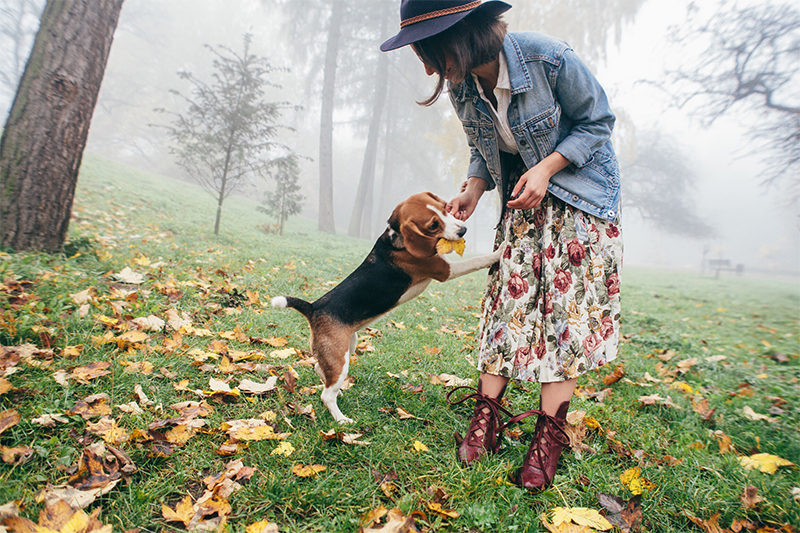Did you know that the best way to begin making friends with a dog and forming a lifelong attachment is when you first bring them home? The second is to learn and understand their personality traits.
As a human does, in a similar way, a dogs’ personalities change over time as they age. According to recent research, nonhuman animal personality can be measured and evaluated in the same way human personality can be done. It is often said that owners and their dogs commonly share personality features.
The behavior of dogs is not very distinct from that of a human. The nature of each human is peculiar. Likewise, dogs are similar in that they are all unique. One individual may just greet you with a smile, another one however may be more sociable and more open to showing their affection.
Dogs are also the same. Some might be shy while approaching a person while others may openly accept the new owner. While all dogs may appear to be the same on the tree of life, each has its distinct personality. Regardless of their breed, all dogs are unique individuals. It’s critical to look beyond your dog’s breed to learn the personality aspects that make them unique. Knowing their personality will bring you closer to them and establish an inveterate relationship between you and your dog.
A dog can have multiple personality types, but one is usually more dominant than the others. Understanding your dog’s personality type might help you teach and respond to their behaviors more effectively. Trying to persuade a shy introvert will be a challenging endeavor, and forcing your dog to do anything contrary to his personality will be even more difficult.

Want to know which one you have at home? Let’s look at a few of the personality traits
Aggressive dogs: The aggressive dog has a strong sense of dominance. They need a firm owner/handler if they are to oppose human leadership. Aggressive canines are usually not suitable for the weak-willed or inexperienced dog owner. A dog with an aggressive personality type can easily be aroused into acting aggressively against other dogs and humans, which can lead to biting. They need to be trained regularly and to a high standard.
A confident breed: A confident dog is usually dominant, self-assured, and a natural-born leader. Unlike aggressive dogs, confident dogs are far more accepting of human leadership. Harsh discipline might backfire with this personality type, prompting them to become hostile and provoking them to engage in offensive or biting conduct. If they don’t have a strong human leader, even confident dogs can be recalcitrant. He can, however, readily take command of a situation and is likely to work well with others. His self-assurance will be reflected in his body language. Confident dogs may exhibit dominant characteristics, and retaliating violently or attempting to dominate your dog may result in jeopardy.
The shy kind: Dogs, like humans, can be bashful or frightened. Forcing your dog into situations may have the opposite effect of what you intended. Even something as basic as a friendly greeting from a stranger might be intimidating for an extremely shy dog. One might feel, this fearful dog should never have been left alone to fail. Although you’re attempting to adapt your dog to the world, he may see your actions as forcing him to do things that are terrifying, leading to mistrust.
Typically, a dog’s behavior and body posture will indicate whether or not they are fearful. It will keep ears pressed against the back of the skull in a cowering position. Shy dog avoids interactions with other canines and/or humans. It will have glassy, dilated eyes. Skulking, pacing, hiding, or fleeing are some features that a shy dog shows. It might also urinate in a submissive manner.
Shy dogs respond well to lots of praise, treats, and encouragement, as well as gradual introductions to new people, locations, or activities. Shy dogs may not thrive in noisy, chaotic surroundings, and without gentle treatment, they may become insecure, fearful, or violent. He’ll require a lot of assurances that he’s safe, secure, and cherished.
The independent dog: Independent dogs are aloof and self-sufficient but can nonetheless make excellent family pets. Particularly in the case of families who live an active lifestyle. As opposed to the other personality types, they do not require as much attention. They can be left alone at home with little risk of misbehavior. They do, however, tend to wander off more if left outside unattended.
The Happy breed: With a wagging tail, this is the traditional friendly dog who loves everybody. They usually get along with everyone, including other pets. Because they are so ecstatic at the prospect of having another closest friend for life, they are more inclined to leap on people. They require instruction to remain calm when confronted with strangers.
Adaptable kind: The Adaptable Dog, is ready to please in any situation and will temper his exuberance in favor of doing something that will make his owner happy. Because they have such a great desire to please, this personality type is the easiest to train. They are sociable without being overbearing, and they pay attention to their surroundings. They get along well with people, other dogs, and cats, and their calm, caring demeanor makes them ideal therapy dogs.
The Outgoing ones: The canine equivalent of social butterflies. Desiring to be adored, hugged, and lavished with attention. They are wonderful family pets. Of course, for a well-adjusted dog, training is required at all times.



